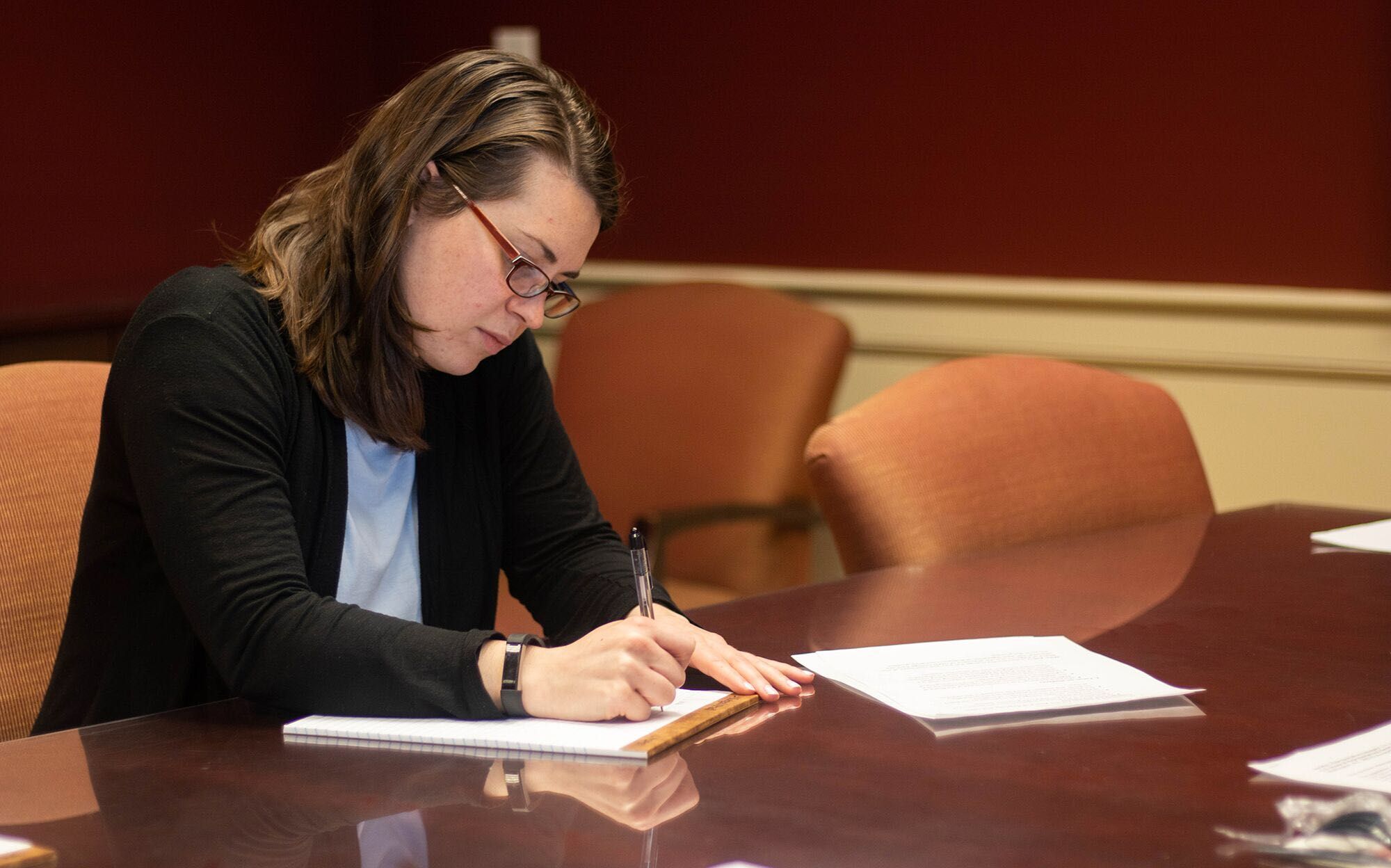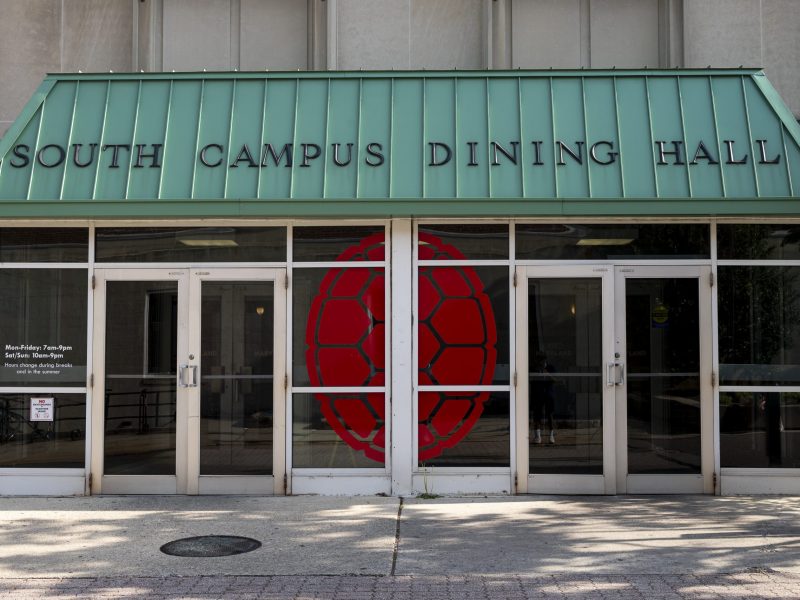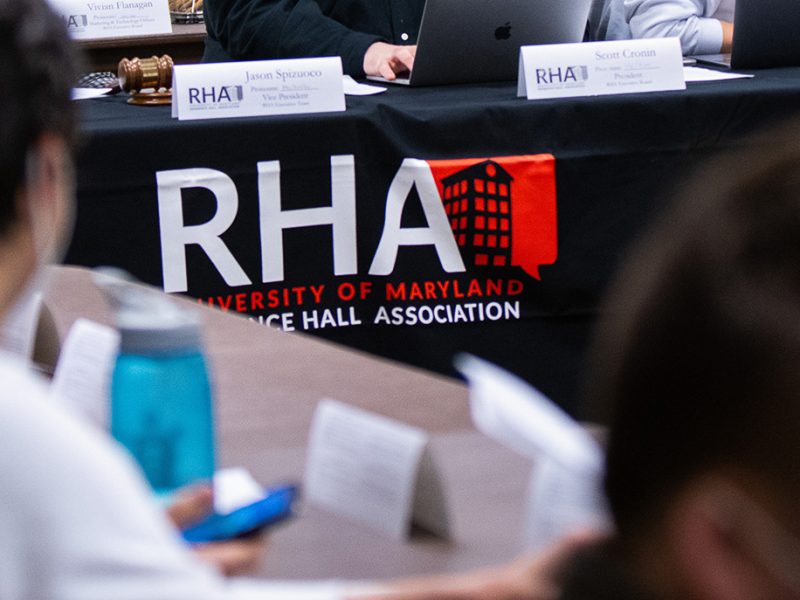On Thursday, at least 30 University of Maryland graduate students will journey out to Annapolis in support of a bill that would give graduate student workers at the University System of Maryland collective bargaining rights.
Their efforts will fall right in line with a long history of graduate students at this university mobilizing for the right to unionize.
But lately, the Graduate Student Government has been working to encourage graduate student engagement with the state legislature beyond the context of collective bargaining. On Monday, the group hosted its first letter writing campaign, which saw relatively low turnout.
[Read more: UMD GSG affirms support for trans students, allocates advocacy workshop funds]
About 10 people stopped by throughout the day to skim through information on issues ranging from affordable housing for graduate students to transparency within the system’s Board of Regents and write notes to state and federal lawmakers.
In hosting the event on the campus, GSG governmental affairs vice president Rachel Lamb said the group hoped to make political advocacy convenient for its constituents.
“They can be here, doing research, teaching, going to classes,” she said, “and take a little time out of their day to come write a letter.”
But the campaign’s out-of-the-way location on the second floor of the Stamp Student Union and a last-minute date change could have pushed attendance down, Lamb said.
Funding for the event came from a November vote by the GSG to allocate $1,955 in its budget for advocacy efforts. So far, this money has been used to hire a graduate student to coordinate such efforts and support trips to Annapolis. Funds will also be used to sponsor a lobbying day in Annapolis on Thursday.
[Read more: After past failed attempts, UMD grad students rally again for collective bargaining rights]
Ashley Clark, the higher education master’s student hired as advocacy coordinator, said she has set up meetings with two lawmakers and is working to arrange a third for Thursday’s event. The issues discussed with legislators will depend on the interests the participating students bring to the table.
“It’s really up to the students to drive the conversation,” she said.
Lamb said about eight graduate students have signaled interest in attending the lobbying day.
In the past, a larger group of graduate students have rallied around legislative issues other than collective bargaining. In November 2017, for example, about 200 graduate students gathered on McKeldin Mall to protest a proposed bill that would have made tuition waivers subject to taxes.
This event may have inspired more participation among graduate students because it confronted a specific policy issue that had an immediate impact on the population, Lamb said.
“II think that kind of motivated people to show up and express concern,” she said.
For next year’s letter writing campaign, Lamb said the GSG will push for greater attendance by learning more about the issues that matter to graduate students and working to get the word out about the event.
In the meantime, Lamb is working with a group of graduate students who are passionate about science and environmental issues to start an official organization at this university. Entomology doctoral student Aditi Dubey said this club would promote bills and policy on the state and federal level, and possibly serve as an advising committee to local agencies.
“I feel like we could make much more change on the local level,” she said. “Meaningful change can start small.”



